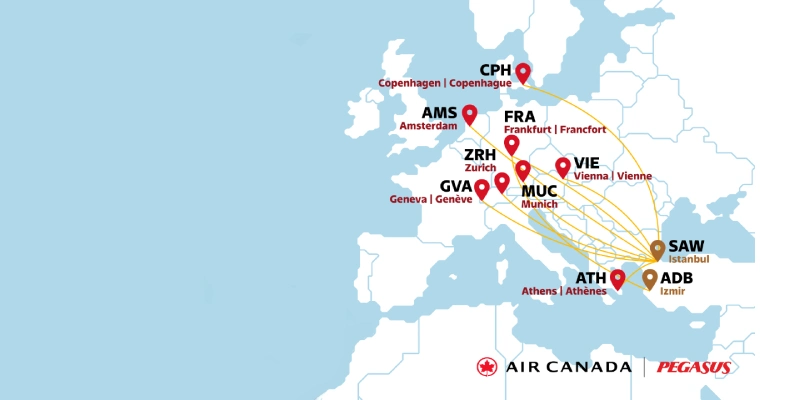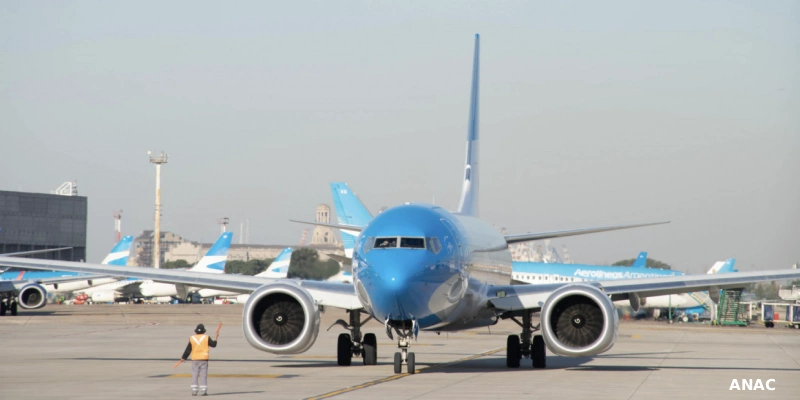Antonio Sena was piloting a Cessna 210 towards an illegal mine in the Brazilian Amazon when the engine stopped “suddenly” and in a few minutes the aircraft plunged to the ground. He escaped unharmed, but was lost in the middle of the jungle.
At the age of 36, an ordeal awaited him, with 38 days of an uncertain journey, from which he would draw one of the greatest “lessons” of his life.
See also: The unusual case of triple air hijacking in Venezuela.
Before crashing, he managed to steer the single-engine plane from about 1,000 meters [3,000 feet] up a valley, halfway between the town of Alenquer, from where it had taken off, and the illegal California mine, in the state of Pará. One of the thousands of illegal mines in the region.
Covered with fuel, he got out of the plane as fast as he could and took “everything that was useful”: a backpack, 3 bottles of water, a bag of bread, 4 soft drinks, rope and an emergency kit with a utility knife, a flashlight and two lighters.
Shortly after, the plane exploded. It was January 28.
See also: Misheard ATC instruction caused A380 to turn wrong way, according report.
For the first five days, he heard air rescue teams searching for him, but without sighting him due to vegetation. And then… nothing. “I was devastated, I thought I wasn’t going to get out of there, that I was going to die,” the pilot told AFP at his residence in Brasilia.
Thanks to the GPS on his cell phone, he determined his location and planned a route to the east, following the position of the sun. In that direction, the map had marked two landing strips, suggesting human presence.
“There was water, but no food and I was vulnerable, exposed to predators” such as jaguar, crocodile and anaconda, he says.
During his pilgrimage, during which he lost 25 kilos in weight, he refloated what he learned in an old survival course.
“Virgin forest”
Born in Santarém (Pará), Sena describes himself as an “Amazonian” lover of the Amazon, one of the most diverse biomes in the world.
So why work bringing supplies to an area of “garimpo,” illegal mining activity? In the Amazon region alone, an estimated 20,000 miners search for gold, polluting rivers with mercury.
“I needed to support myself,” explains Sena, who has 2,400 flying hours to his credit and worked in air cab services in Brazil and other countries, such as Chad.
In recent years he opened a restaurant in Santarém, a city located at the confluence of the Amazon and Tapajós rivers, but had to close it due to the restrictions of the coronavirus pandemic, which has already left more than 345,000 dead in Brazil.
To get out of trouble, he agreed to make two trips for garimpeiros. “I was never attracted” by that possibility, “but it was what I had to get some sustenance,” alleges the pilot.
Motivated by the idea of seeing his parents and siblings again, he walked 28 km through the depths of the jungle, satiated his hunger with the same fruits he saw the monkeys eating and ingested three blue tinamou eggs, his only protein in those lonely days.
“I had never been in an area of jungle so virgin, so untouched. I discovered that the Amazon is not just one, it is 4 or 5 jungles in one,” says Sena, recalling that he saw mangroves with small crabs, swamps and forests of closed vegetation, with orchids high up in the trees.
“I will never fly for the garimpo again.”
On the 35th day of walking, Sena heard for the first time something foreign to the jungle, a chainsaw in the distance. The next day she heard it again and walked in that direction, until she came across a camp of Pará chestnut gatherers… Her salvation!
Maria Jorge dos Santos Tavares, who has been collecting chestnuts with her family for 50 years, helped him contact his mother to tell her he was alive.
“She gave me food, she gave me clean clothes,” Sena recounts. “These are people for whom I now have enormous affection,” he adds.
Being saved by a family that lives “in harmony” with nature left him with a “very big lesson.”
“Despite the circumstances that led me to make that flight (…), to have been found by a family of extractivists, who work in connection [with nature], who do not attack the forest … for me it was magical,” he says.
“I will never fly for the garimpo again, I am sure of that,” he promises.
Related Topics
Air Canada Expands Connectivity with Türkiye Through New Interline Agreement with Pegasus Airlines
Aer Lingus Aligns 10kg Carry-on Policy Across All Regional Flights
General Strike in Argentina: Over 400 Flights Cancelled and 64,000 Passengers Affected
Avianca Launches New Direct Medellin-Pasto Route, Strengthening Its Domestic Network in Colombia

Plataforma Informativa de Aviación Comercial con 13 años de trayectoria.




